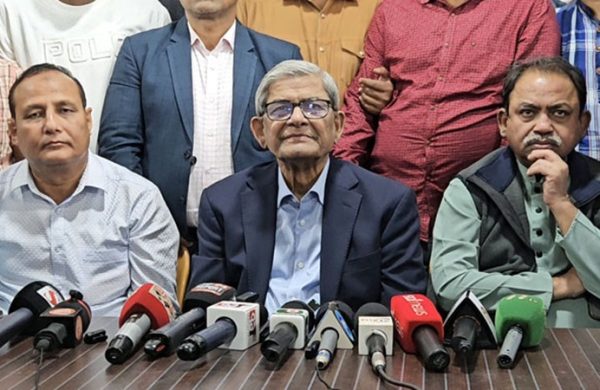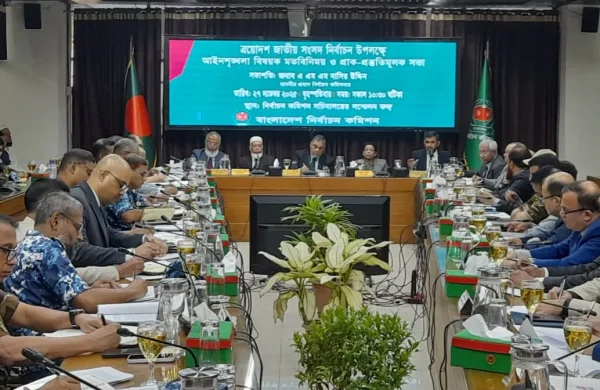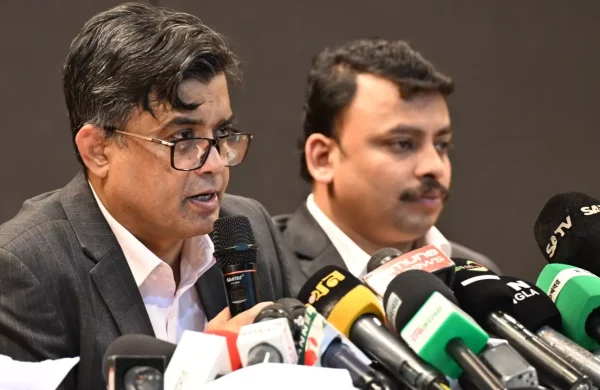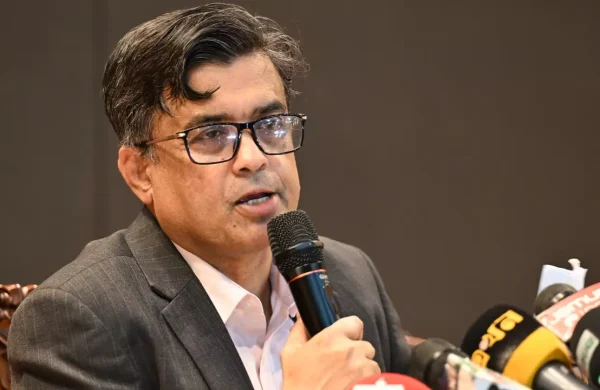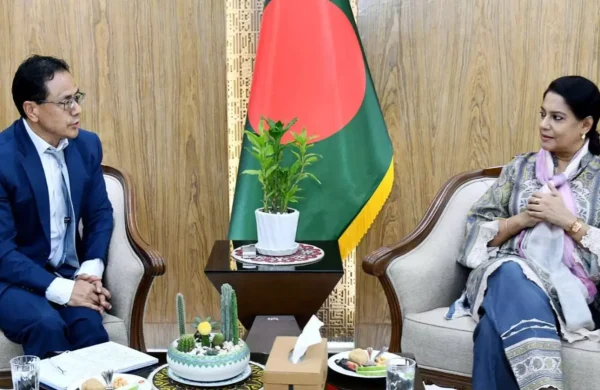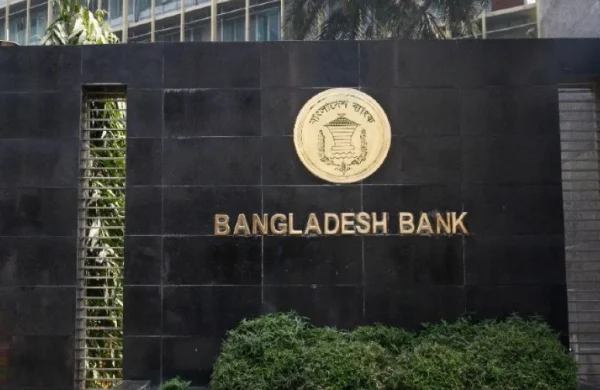Ousted Hasina’s ‘Hasinomics’ accountable for catastrophic loan defaults, corruption: BNP’s Rizvi
- Update Time : Thursday, November 27, 2025
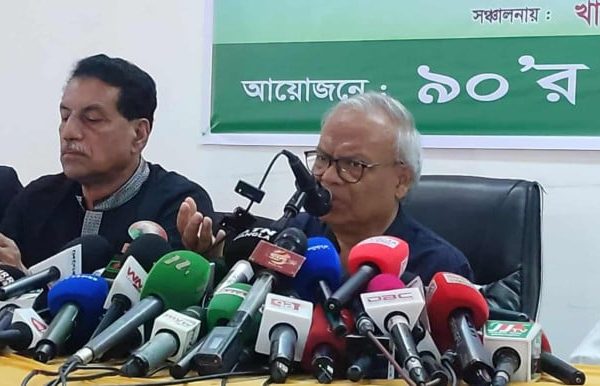
Staff Correspondent:
Senior Joint Secretary General of the Bangladesh Nationalist Party (BNP) Advocate Ruhul Kabir Rizvi has accused ousted Sheikh Hasina’s fifteen-and-a-half-year rule of establishing an artificial economic system he described as “Hasinomics”, alleging that it fuelled a catastrophic surge in loan defaults and institutional corruption.
“The core policy was that if you took a loan from a bank, you were not obligated to repay it. Opportunities were created under the Sheikh Hasina regime to take out new loans without settling the old ones,” Rizvi said, speaking at a memorial meeting at the National Press Club on Thursday afternoon (27 November).
The event, organised by the ’90s Ducsu and All-Party Student Unity, marked the 35th martyrdom anniversary of Shamsul Alam Khan Milon.
He claimed the country is now burdened with approximately Tk6.5 lakh crore in default loans and argued that “strong measures” are needed from the new government to stabilise the economy. “While steps are being taken on one front, collapse is occurring on another. The government must focus on issues like a lack of employment generation and rising unemployment.”
Commenting on the recent gold scandal in bank vaults, he asked: “How is it possible for 832 bhori of gold to disappear from two bank vaults? There is talk that more gold is held in other vaults. It may soon be revealed whether this gold belongs to Sheikh Hasina or someone close to her party.”
He added, “At one point, she declared assets of gold worth Tk18–19 lakh, and now hundreds of crores of Taka worth of gold are being unearthed. This demands a thorough investigation.”
Rizvi maintained that “law courts, administration, RAB, and police” had all operated under the “direct instruction” of Sheikh Hasina. “We witnessed the epitome of a completely autocratic, fascist rule under Sheikh Hasina,” he said.
He further alleged that abuses carried out under the former administration—including “torture, murder, and oppression”—must not remain unpunished. “There was no difference between the character of Ershad and Sheikh Hasina. Though they appeared to be publicly confronting each other, they ultimately joined hands at the last moment, uniting to repeatedly slaughter democracy.”
On Khaleda Zia’s health, Rizvi reiterated: “Begum Zia’s illness was artificially engineered through a conspiracy orchestrated by Sheikh Hasina. As she was in government custody, it was possible to interfere with her food or medicine, and the government played with people’s lives.”
He concluded by warning that Sheikh Hasina may have believed she would evade accountability, but: “Sin spares no one.”




